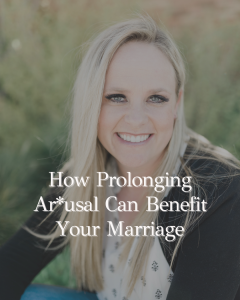
Stop settling for bad sex! I talk to a lot of women who just think bad sex is what sex is or that bad sex is better than no sex. This isn’t true. You can have a great sex life that is fun for both you and your partner. Listen to this podcast where we talk about what bad sex is and, more importantly, what good sex is. Never settle for bad sex again!
Show Notes:
Follow Amanda on Facebook and Instagram.
Join Amanda’s Private Facebook Group.
Show Summary:
Women often come to me with no desire. And when they do, we have to look at why they have no desire. Is there something wrong with their desire system? Do they understand the difference between responsive desire and spontaneous desire? Or is it good judgement for them not to desire sex because of what is happening. Most women I know don’t have mind-blowing sex and low desire (although some do). But a lot of time that low-desire comes because of bad sex. What is bad sex? Why does it happen? And how can we fix it? That’s what we are talking about today.
So first let’s talk about what bad sex is.
First off, if sex is painful, then it’s not good sex. If sex is painful, of course you don’t desire it. That’s neuroscience. We don’t desire things that cause us pain. So if you are having painful sex, we need to work on fixing that before we can fix the desire part. I want to refer you back to Episode 116, an interview I did with Pelvic Floor Physical Therapist Valerie Schwalbe where we talked about painful sex, the causes, and the solutions.
I think we also need to look at the conditioning we received around painful sex. I would guess that most of us went into having sex for the first time expecting it to be painful. I know I did. That was pretty much the only sex advice I got from my mom before my wedding night. Sex shouldn’t be painful. Ever. Not even your first time.
Some of the most common reasons why sex is painful, that are easily fixable, is making sure we are properly lubricated and highly aroused. Couples on their wedding (and many afterwards as well) are not spending a sufficient amount of time to make sure that the woman is fully aroused before penetration, which can be painful. If a woman is sufficiently aroused, most will be well lubricated (use some additional if needed, see Episode 96) and the vagina opens and lengthens to accommodate the penis.
So make sure that you have spent a significant amount of time warming up to make sure that she is fully aroused before penetrating. There should always be consent given before penetration. Women, check in with yourself to make sure you are ready. Do not let him enter if you are not.
If you are experiencing pain, do not push through. Stop. Immediately. When you push through the pain, it doesn’t make it better. You are betraying your body when you do this, which will cause your body to shut down, including your desire and arousal response. I know many women who have been unable to have an orgasm until they’ve healed the relationship they have with their body because they pushed through the pain. Even if your husband is pushing for it, or if you feel bad or guilty for having pain, go see a pelvic floor physical therapist but do NOT push through it. It will cause more damage than good to your body and your relationship with your body.
It is bad sex when you are not prioritizing your pleasure. If it’s all about him all the time, that’s bad sex. If it’s duty sex, like we talked about a couple of weeks ago, that’s bad sex. We kind of get into this gray area where the sex is consensual, you are saying yes to it, and it’s not quite coercion, but sometimes there’s consequences, so that would be considered bad sex. You want sex to be a “HECK YES” most of the time. And if it’s not that, it’s at least, an “I’m totally willing because I know I’ll get into it once we get going.” But many women (and men) settle for bad sex because they think that’s just what sex is or it’s the only sex they’ll get. Don’t settle for bad sex. Studies show that sex is better for both parties when it is female focused. If it’s all about him, stop.
I will also say that if sex is non-consensual, coercive, exploitative, etc. that that is also bad sex and absolutely NOT ok EVER, let alone in a loving marriage.
Sometimes sex is just boring. I would consider boring sex bad sex. If you do the same thing every single time, that gets boring. If you had hamburgers every single night for dinner, even if you really liked hamburgers, it would eventually get boring. Just like food, we like variety. But we tend to fall into patterns and scripts and that gets boring, which translates to bad sex. I talked about sex being boring in Episode 146 if you want to expand on this topic more.
So what is good sex? I think if we asked a hundred different people they’d probably say a hundred different things. It’s so individual and there are so many potential answers to that question. But I think there are some common things that most women would say makes for good sex:
- They feel seen and heard.
- They feel cared for and nourished.
- They feel desired.
- They feel like an equal partner.
- They feel connected.
- Sex is pleasurable
Now we need to understand that not every sexual experience is going to be perfect. You are probably not going to get mind-blowing sex every single time you are together. Things go wrong. What’s important is to be understanding and communicate with your partner about how things could change for the better. If there is pressure for things to be amazing, that actually usually makes things worse. When we have pressure we have more cortisol in our bodies, which shuts down our sexual function and makes orgasms more elusive. Pressure and pleasure don’t mix.
Often, when you’ve had bad sex for a long time, it’s hard to switch to good sex. Sometimes we have to move towards “good enough sex.” I’ve had a few clients where it’s been really hard to figure out why they are not having pleasure and orgasms with sex. With these clients, we often have to go to the “good enough” model, where we are focusing on connection and what IS good instead of focusing on what is missing.
So how do we fix bad sex? Most want an immediate fix. A quick fix. It’s very human to want out of the pain you are experiencing in your current situation as quickly as possible. There are usually two ways that we try to fix it. The first is to look internally. I’m the problem. I’m broken. So I need to fix me quick so that this gets solved. So they listen to a podcast, read a book, buy a course, all with the hopes that they can fix this problem quickly. The second option is they look externally. Their partner is the problem, so they need to fix it. And they might suggest books, podcasts, courses, etc. to their partner so that they can fix themselves so they’ll feel better. Quick fixes don’t work for most. Sure, you might get some temporary relief, but most of the time you’re not getting to the root of the problem, so the problems resurface.
Fixing bad sex takes time. It’s a process of rewiring many of the systems in your body. If you have pain, you are going to have to work on the physical aspect, but there is a mental aspect to it as well. Rewiring that pain response takes time. If you haven’t been making your pleasure a priority, most women can’t just say “ok, I’m the priority” and it’s all better. And if sex is boring, sure you can try some new scripts and ideas, but again, there is always underlying reasons why it was that way in the first place.
So, in order to fix bad sex there are some steps you need to follow.
- Awareness. You have to understand where you are and how you got there. What’s not good about it? What do I think and believe about sex? What is good sex and why do I want it? What’s the difference between good enough and great sex?
- Education. Now this is where the books, podcasts and courses can come in. Education is an important key. You need to know what’s normal and what’s possible and how to fix it.
- Sharing the knowledge with your partner. This isn’t the time to be critical. It’s a time to learn how to communicate effectively about sexual things. It’s about understanding who you are and what you want for yourself and for your marriage.
- Courage to fail. As a society, we are afraid of failure. But we have to understand that we may fail in order to learn how to succeed. That takes courage.
I want you to know that all of these steps are available in my Embrace You! Elite Society Membership. We start off building awareness. Education is built in every step of the way. You don’t have to spend months and months reading all of the books because I’ve read them and can pass the pertinent information on to you. I teach you how to have these delicate but important conversations with your partner in helpful ways that build intimacy and connection. And of course I am there to support you and give you courage as you work through this process. It still takes time but because I’ve done this work for so long, I give you the fast track. It took me years to figure out this process on my own. My clients figure it out in a matter of weeks. I want that for you too.





